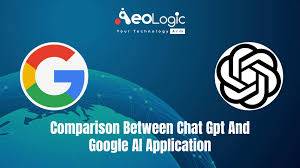"AI and Google: Transforming Information Access and
User Experiences"
AI and Google have a significant relationship that has
shaped the way we interact with information and technology. Google has been at
the forefront of incorporating AI technologies into its products and services,
revolutionizing search engines, online advertising, and various other areas.
Here's an overview of the role AI plays in Google:
Search and Natural Language Processing: Google's search
engine is powered by AI algorithms that analyze and understand the context of
search queries. Through natural language processing, AI helps Google interpret
user queries more accurately and provide relevant search results. AI also
enables features like voice search and autocomplete suggestions, making search
more intuitive and efficient.
Google Assistant: Google's virtual assistant, known as
Google Assistant, relies heavily on AI. It uses natural language understanding
and machine learning to process user voice commands and provide information,
perform tasks, and interact with various devices. Google Assistant has become a
central component of Google's ecosystem, integrated into smartphones, smart
speakers, and other smart devices.
Image and Speech Recognition: AI plays a crucial role in
Google's image and speech recognition capabilities. Google Photos uses AI
algorithms to automatically organize and categorize photos based on content,
location, and people. Google's speech recognition technology, powered by AI,
enables accurate voice-to-text transcription and voice commands in various
applications.
Machine Learning and Personalization: Google utilizes
machine learning algorithms to personalize user experiences across its
platforms. By analyzing user data, search patterns, and behavior, AI enables
Google to deliver more relevant search results, personalized recommendations,
and targeted advertisements. This enhances user satisfaction and improves the
effectiveness of Google's services.
Google Translate: AI-driven language translation is a key
feature of Google Translate. Through machine learning techniques, Google
Translate can analyze and translate text between different languages. With the
help of AI, the quality and accuracy of translations have significantly
improved over time.
DeepMind: DeepMind, an AI research lab acquired by Google's
parent company, Alphabet, has made significant contributions to AI development.
DeepMind's achievements include breakthroughs in reinforcement learning,
game-playing AI systems (such as AlphaGo), and healthcare applications.
DeepMind's research and advancements have further propelled Google's AI
capabilities.
Google's AI Initiatives: Google actively invests in AI
research, development, and collaborations. It sponsors academic programs,
conferences, and competitions to promote AI advancements. It also offers AI
tools and frameworks, such as TensorFlow, to facilitate AI development and
encourage innovation in the broader AI community.
In summary, AI is deeply integrated into Google's products and services, enhancing search accuracy, personalization, voice recognition, and language translation. Google continues to invest in AI research and development, driving innovation and shaping the future of AI applications and technologies.



No comments yet
Be the first to share your thoughts!